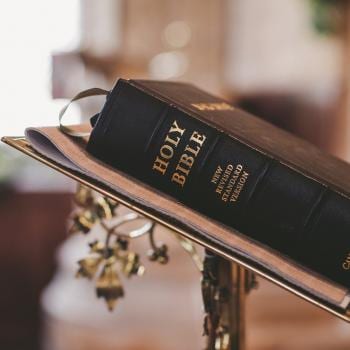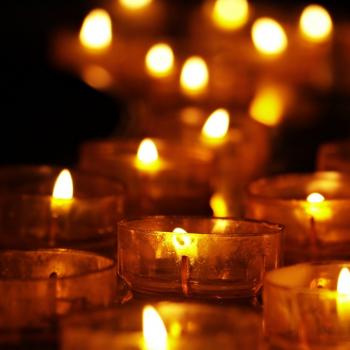The Unitarian Universalist church is not united by a statement of faith, but rather by a set of progressive social values. Because of that, UUs are all over the map when it comes to beliefs about God. There are pagan UUs, Catholic UUs, atheist UUs, agnostic UUs, Hindu UUs, deist UUs, and even Muslim UUs. The result is that any given UU church brings together people from a variety of religious traditions and with a variety of current beliefs regarding religion, uniting them on the basis of shared values like equality, social justice, and care for the environment.
The official website for the Unitarian Universalist Association of Congregations describes Unitarian Universalism as “a religion that celebrates diversity of belief and is guided by seven principles.” What are these seven principles? Let’s look:
- The inherent worth and dignity of every person;
- Justice, equity and compassion in human relations;
- Acceptance of one another and encouragement to spiritual growth in our congregations;
- A free and responsible search for truth and meaning;
- The right of conscience and the use of the democratic process within our congregations and in society at large;
- The goal of world community with peace, liberty, and justice for all;
- Respect for the interdependent web of all existence of which we are a part.
As I’ve spent time attending my local UU church and learning about Unitarian Universalism, I have come to understand the problem many atheists have with it, and it’s not just that some dislike ritual or congregational gathering or having someone called a “minister.” It’s that being a UU means you have to accept UUs who are Christian, or Hindu, or Muslim, and encourage them to follow their own paths rather than criticizing their beliefs as delusions and hoping that they will deconvert. To be a UU, you have to be okay with a diversity of belief, or even see it as a good thing. You also have to be okay with certain religious language, such as “the spark of the sacred,” and with being in a group that defines itself as a “liberal religious community” or speaks of the “Unitarian Universalist faith.” And many atheists are not okay with that.
At this point some of my atheist readers may be shaking your heads and wondering why an atheist would ever attend a Unitarian Universalist church. But you know what? Nearly half of UU members don’t believe in God. Forty-six percent of UUs define themselves as “capital H” Humanists (aka the kind of humanist that doesn’t believe in the supernatural). Yes, you read that right, 46%. Here is a breakdown:
Please check the one of the following which best describes your theological perspective:
- Humanist: 46.1%
- Earth/Nature centered: 19.0%
- Theist: 13.0%
- Christian: 9.5%
- Mystic: 6.2%
- Buddhist: 3.6%
- Jewish: 1.3%
- Hindu: 0.4%
- Moslem: 0.1%
- Other: 13.3%
In other words, there are a lot of atheists (and agnostics) who are members of UU churches. In fact, there are more atheists (and agnostics) than there are individuals of any one other group. Clearly, there are a lot of atheists who like what the Unitarian Universalist church has to offer. There are a lot of atheists who are content to respect others’ beliefs and journeys and be united by shared progressive social values like equality and social justice with individuals with a variety of approaches to religion.
As an atheist UU, you don’t have to pretend you believe in god. No one blinks when you say you don’t. No one sees that as abnormal or weird, and no one tries to convert you. But the trade off for an atheist UU is that you must in turn not blink when Christian or pagan UUs say they *do* believe in a god (or gods), not see them as abnormal or weird, and not try to convert them. And not all atheists are okay with that.














